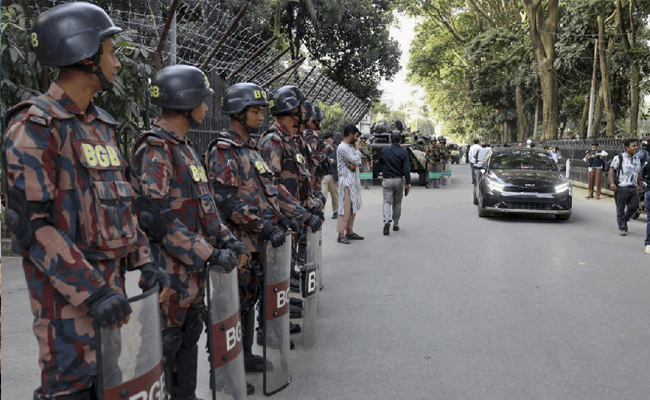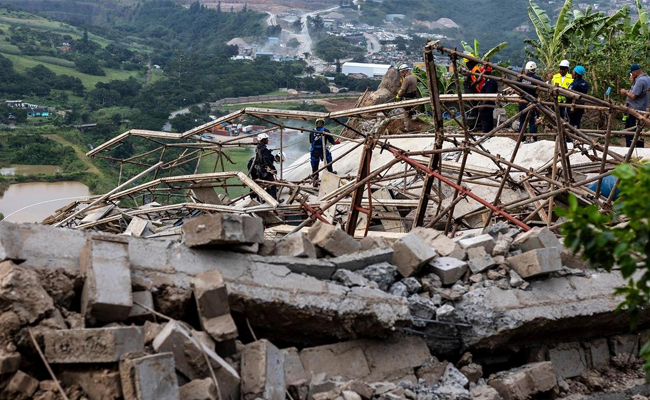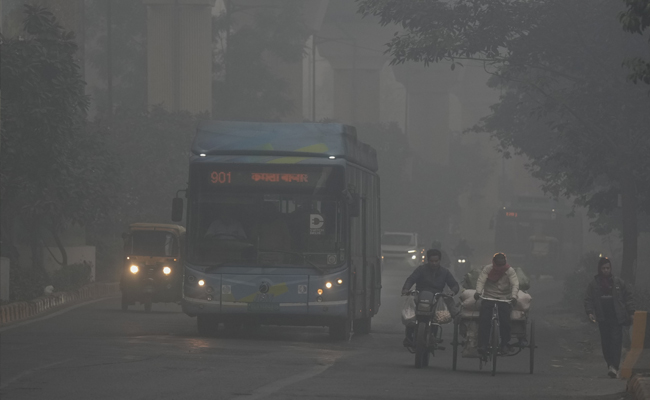Belagavi (K'taka) (PTI): The Karnataka government is taking measures to prevent female foeticides, including amending the concerned legislations, formulating a new policy and setting up a State-level task force, Health Minister Dinesh Gundu Rao told the Legislative Assembly on Thursday.
Along with creating awareness in the society, the government also wants to create a fear of law among people, against indulging in such heinous acts, he said.
A CID probe has already been ordered to probe such incidents, Rao said.
Health Department officials have been directed to regularly conduct spot inspections, the Minister said but acknowledged that ineffective implementation of Pre-Conception and Pre-Natal Diagnostic Techniques (PCPNDT) Act is coming in the way of fully stopping cases of female foeticides and arresting the declining sex ratio in India.
The declining gender ratio indicates female foeticides are happening, he further said. "If you look at civil registration data, last year it was 947 females for 1,000 men, this year it is 929. It has come down."
He was replying to issues raised by a few MLAs including Leader of Opposition R Ashoka, expressing concern over the increasing cases of female foeticide in the state.
Highlighting the need for a joint operation by the health and police departments to prevent female foeticides, Rao said the proposed State-level task force would help in swiftly acting against any illegal activities. In addition, there are plans for setting up sub-division level monitoring committees, besides deploying an ACP-level officer for proper coordination to deal exclusively with female foeticide cases.
He said the call centre of the health department, which is currently non-functional, would be activated from next month. A tender will be called for this, and this would also cater to instances of female foeticides, among other health-related concerns.
The Minister said the government is also planning to come out with a policy to prevent female foeticides.
He said amendments to the legislation concerned would be effected in consultation with the Health, Home and Law Departments, to make it more effective.
"Nothing will come out of normal inspection or spot visits. Collecting intelligence by involving ASHA and Anganwadi workers and local leaders is important," the Minister said adding that the District Health Officers (DHOs) and Family Welfare Officers have been told to conduct decoy operations once in three months, in their jurisdictions, to identify hospitals involved in female foeticides.
A private hospital in Bengaluru Rural district was sealed and four of its employees were detained after a female foetus was found inside a dustbin of its premises on Wednesday.
Earlier this month, the Karnataka Health department had asked district health officers to inspect and seal unauthorised medical facilities and those run by 'fake doctors' after police busted a sex determination and female foeticide racket in Karnataka.
Several arrests have been made in connection with the scandal uncovered in Bengaluru, Mandya and Mysuru districts.
Let the Truth be known. If you read VB and like VB, please be a VB Supporter and Help us deliver the Truth to one and all.
Dhaka (PTI): The Election Commission (EC) has demanded extra security for its chief, other commissioners and officials as fresh unrest visibly gripped Bangladesh after gunmen shot an upcoming parliamentary polls candidate and frontline leader of last year's violent street movement dubbed 'July Uprising'.
"The EC has written to the Inspector General of Police (IGP) urging comprehensive security arrangements for the Chief Election Commissioner (CEC), Election Commissioners (ECs), senior officials of the Election Commission Secretariat," the state-run BSS news agency reported on late Saturday.
The EC simultaneously sought the extra security for its field-level offices ahead of the 13th national election, as two of them came under attack in southeastern Lakshmipur and southwestern Pirojpur by unidentified miscreants after the announcement of the schedule for the upcoming polls on Thursday.
The commission demanded an additional escort vehicle for the CEC, while one such police escort with a vehicle was currently in place for him. It asked for round-the-clock police escorts for the four commissioners and the senior secretary.
The letter said the enhanced security measures were "urgent and necessary," while EC officials said their 10 regional offices, 64 district election offices and 522 sub-district level offices would store important documents and election materials.
The EC on Thursday said the upcoming parliamentary election would be held on February 12 next year, while a day later, Sharif Osman Hadi was shot from a close range in the head, critically wounding him, as he initiated his election campaign from a constituency in the capital.
Critically ill former prime minister Khaleda Zia's Bangladesh Nationalist Party (BNP) simultaneously asked Muhammad Yunus' government to provide security for all candidates in the upcoming election after the attack on Hadi, who leads a radical right-wing cultural group called Inquiab Mancha.
"We demand that the real culprit be identified immediately and brought under the law, and we call upon this government to ensure the security of all candidates without delay," BNP Secretary General Mirza Fakhrul Islam Alamgir said.
Hadi was also a frontline leader of last year's student-led violent uprising that toppled then-prime minister Sheikh Hasina’s Awami League government on August 5, 2024.
His Inquilab Mancha was also at the forefront of a campaign to disband the Awami League, which the interim government complied with in May this year, disqualifying the party from contesting the polls.
The government on Saturday ordered a nationwide security clampdown called 'Operation Devil Hunt 2' amid escalated fears over the law and order situation and promised to issue firearms licenses for election candidates for their own security.
Home adviser (retd) Lieutenant General Jahangir Alam Chowdhury said the government had taken steps to ensure special security for the "frontline fighters" of the July Uprising and promised to issue firearms licenses for the election candidates.
He emphasised that the second phase of the 'Devil Hunt' was aimed at helping ensure public safety and combat the growing threat of illegal arms.
The operation was initially launched in February this year following protests over an attack on the private house of a former minister of the ousted government in the northern suburb of the capital, when it targeted alleged "henchmen" and supporters of the now disbanded Awami League.





